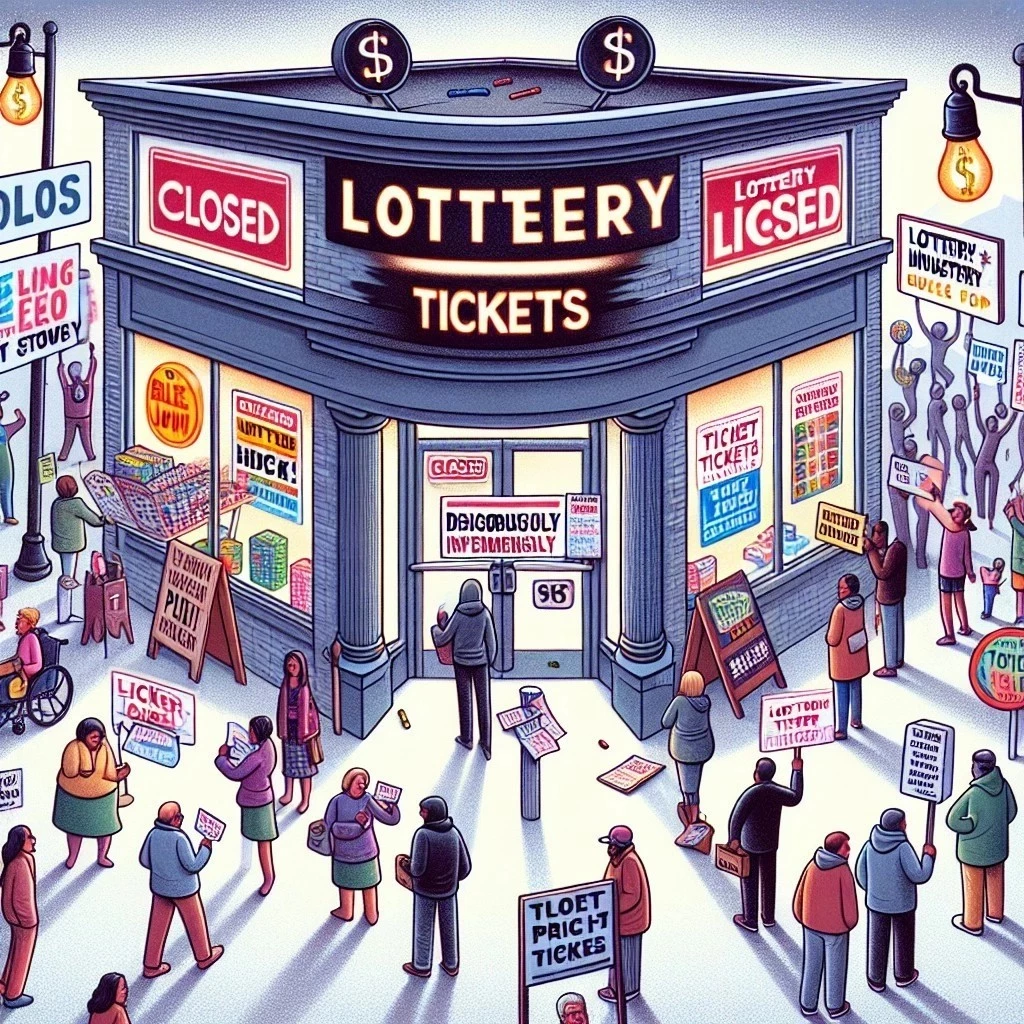Discover why the lottery industry is under threat of shutdown due to ticket price hikes and public scrutiny. Explore the potential for government intervention.
Lottery Industry Faces Potential Shutdown Amid Ticket Price Hike and Calls for Reform
Wellcome Offer:
200% up to $2,000
+ 100 Free Spins
The winnings from your free spins will be credited as bonus funds. Exclusively available for new players with fair wagering requirements.
Wellcome Offer:
250% Bonus up to $5,000
+ 100 Free Spins
Claim your bonus and spin your way to big wins! Minimum deposit of $20 required. Wagering requirements apply. Bonus valid for 30 days.
Get up to:
100% up to $1,000
+ 300 Free Spins
You need to deposit at least $25 to be eligible for this bonus. The maximum amount of money you can withdraw from this bonus is limited to $20,000 or 10-times.
Welcome Package:
500% up to $5,000
+ 250% on your 2nd and 3rd deposits
This welcome package rewards new players across their first three deposits. A minimum deposit of $25 applies, with a wagering requirement of 60x before withdrawals.
Wellcome Offer:
250% up to $1,500
+ 100 free spins
Whether you prefer generous deposit bonuses or a bundle of free spins, Cafe Casino’s welcome offer has everything you need to enhance your gaming adventure.
Wellcome Offer:
500% bonus up to $7,500
+ 150 free spins
If you're after big deposit bonuses or a load of free spins, Ducky Luck Casino’s welcome package sets the stage for an exciting gaming adventure.
Welcome Offer:
200% up to $2,000
+ 100 Free Spins
This welcome package combines a deposit match with free spins, giving new players a powerful way to kick off their VoltageBet journey.
Wellcome Offer:
200% up to $1,000
+ 30 free spins
Lovers of slot games and those looking to boost their deposit will find Slots LV Casino’s welcome offer the perfect way to jumpstart their gaming journey.
Wellcome Offer:
200% up to $500
+ Free Spins
Terms typically include standard wagering requirements and a limited validity period. Offers vary by deposit method and player eligibility.
Wellcome Offer:
250% up to $1,500
+ 50 Free Spins
All winnings from free spins are credited as bonus funds, with fair wagering requirements. Exclusive to new players.
Amidst recent ticket price hikes‚ the lottery industry finds itself at a crossroads as lawmakers threaten to implement a complete shutdown unless significant changes are made. This development comes on the heels of increasing public scrutiny and calls for government intervention in the wake of rising gambling concerns.

The Background: Ticket Price Hike
Earlier this month‚ the lottery announced a ticket price hike‚ which was met with mixed reactions from consumers and stakeholders. The increase was justified by the need to boost revenue to support various state-funded initiatives. However‚ the hike has led to a decline in ticket sales‚ raising questions about the long-term viability of this strategy.
Lawmakers and the Threat of Shutdown
In response to the public outcry‚ lawmakers have stepped in‚ threatening a complete shutdown of the lottery unless it undergoes a major change. The demand for reform includes enhancing regulation and ensuring more responsible gambling practices. With the potential shutdown looming‚ the pressure is mounting on lottery officials to act swiftly.
Government Intervention and Regulation
The call for government intervention is not new‚ but the current climate has added urgency to the discussions. Proposals for stricter regulation are being debated in legislative circles‚ with a focus on ensuring transparency and fairness in lottery operations. The potential legislation aims to address concerns over gambling addiction and the socio-economic impact of lotteries.
Public Response and Consumer Reaction
The public response has been divided. While some consumers support the intervention‚ hoping for more ethical gambling practices‚ others fear that increased regulation could further drive up ticket prices or reduce the frequency of large jackpots. The consumer reaction is crucial‚ as it could influence the direction of future policies.
Economic Implications and Revenue Impact
The economic implications of these developments are significant; The lottery serves as a vital source of funding for state budgets‚ supporting education‚ infrastructure‚ and other public services. Any disruption in revenue streams could lead to budget shortfalls‚ impacting numerous programs. The gaming commission is tasked with assessing these potential impacts and advising on operational changes to mitigate them.
Policy and Legislative Considerations
The unfolding scenario has placed a spotlight on policy and legislation regarding gambling and lotteries. Lawmakers must weigh the benefits of lottery revenues against the need for responsible gambling practices. The challenge lies in crafting legislation that balances these priorities without alienating consumers or compromising state budgets.
As the lottery industry navigates this turbulent period‚ the outcome will likely set a precedent for how gambling is regulated in the future. With lawmakers pushing for reform and the threat of a shutdown looming‚ the need for strategic and thoughtful action has never been more critical. All eyes are now on the industry as it seeks to adapt to these major changes while maintaining its role as a key revenue generator for states.

























